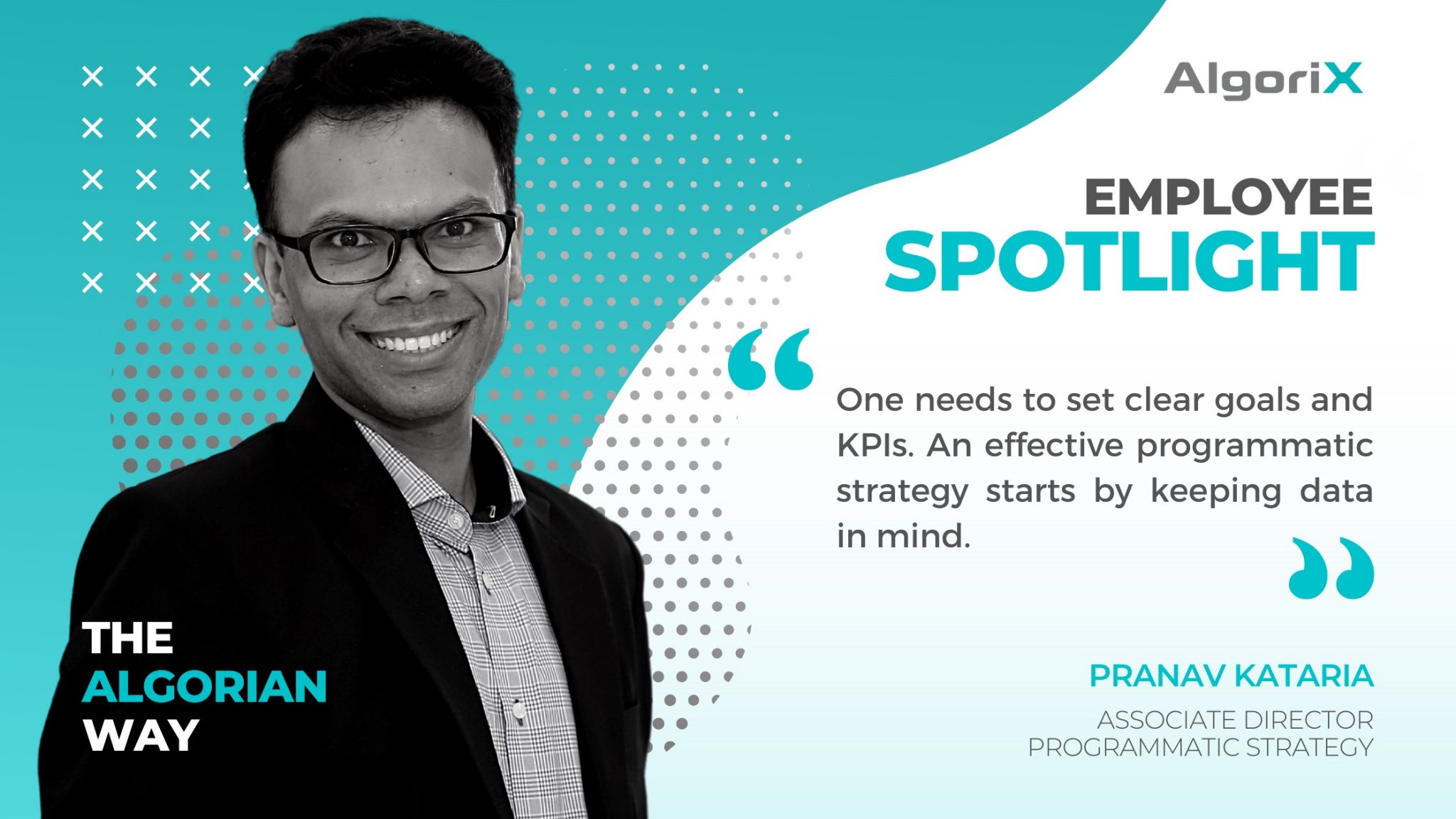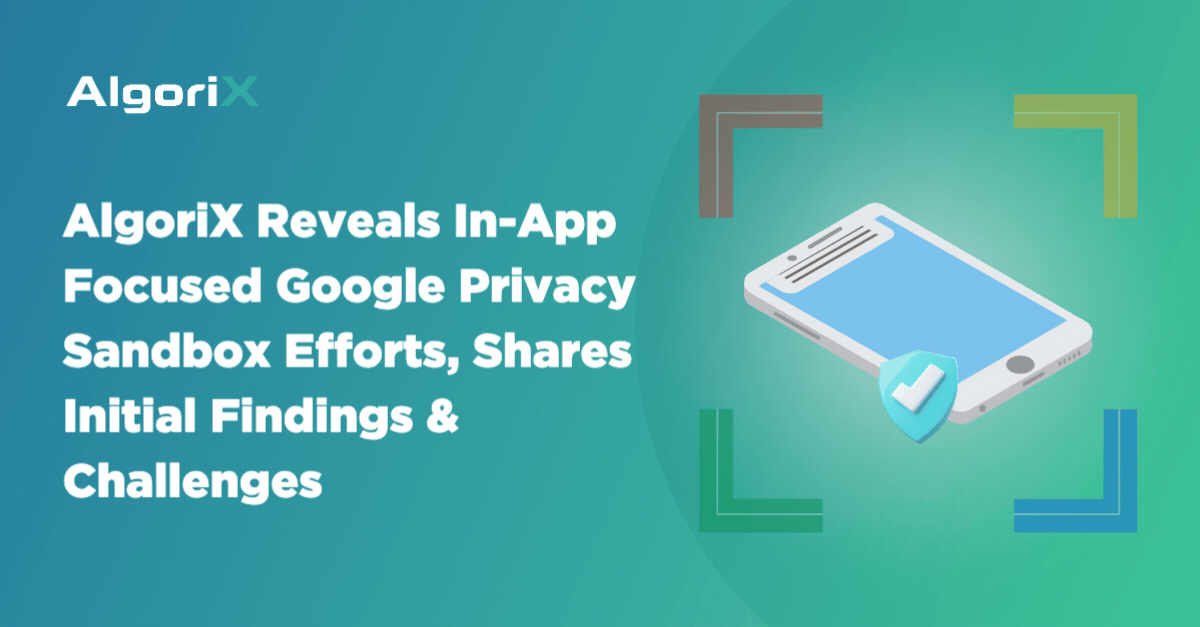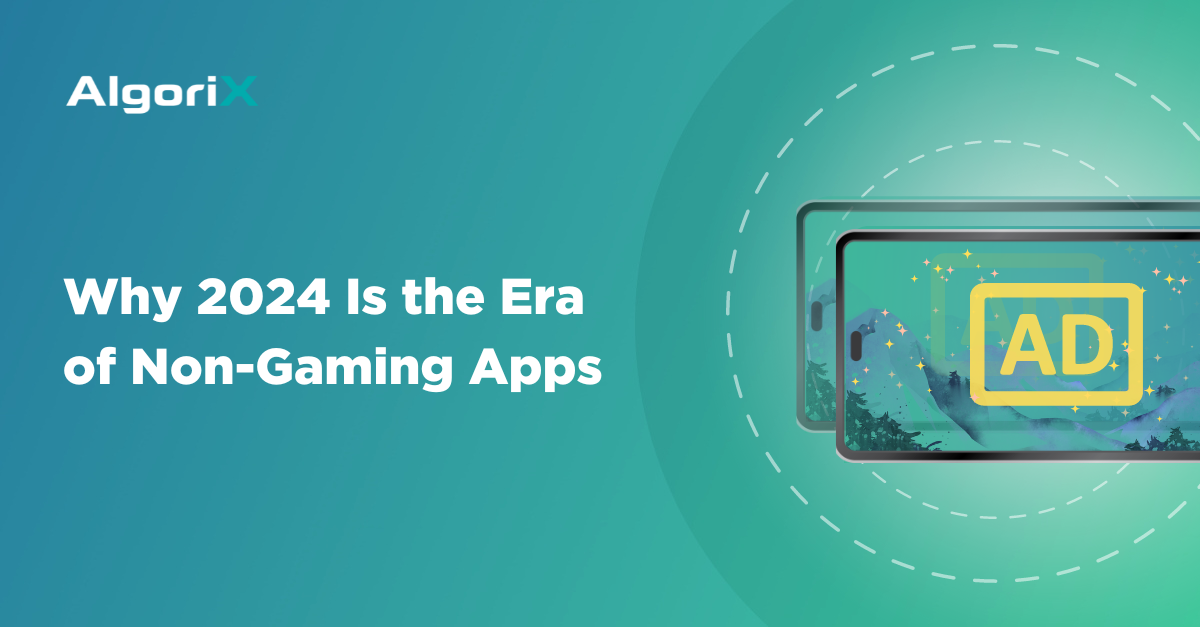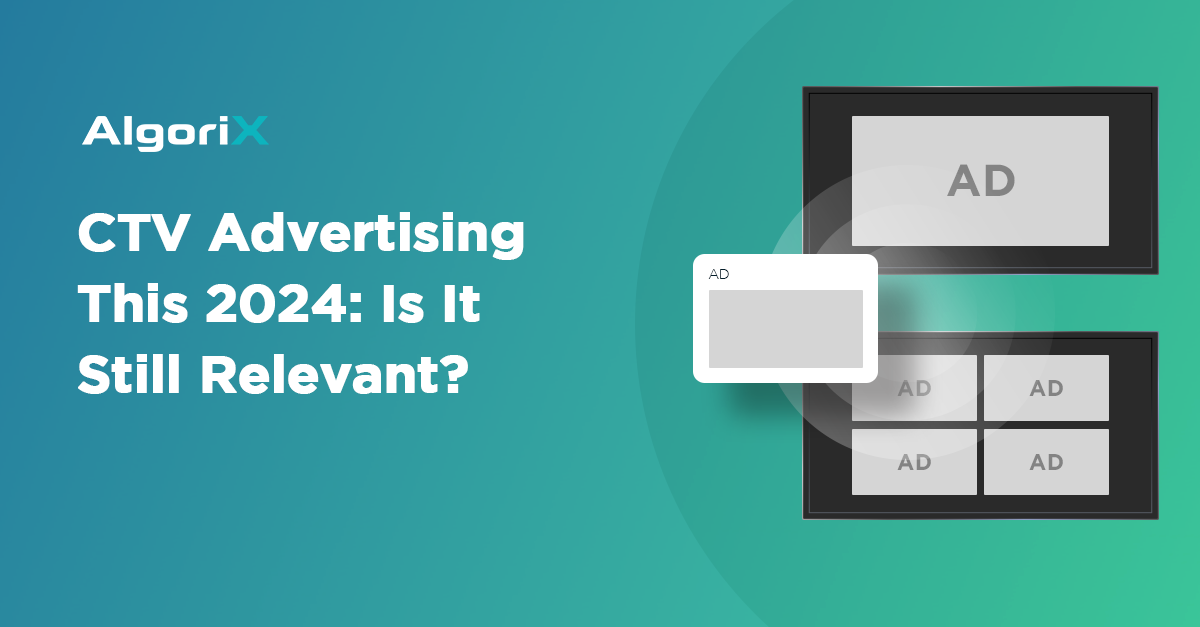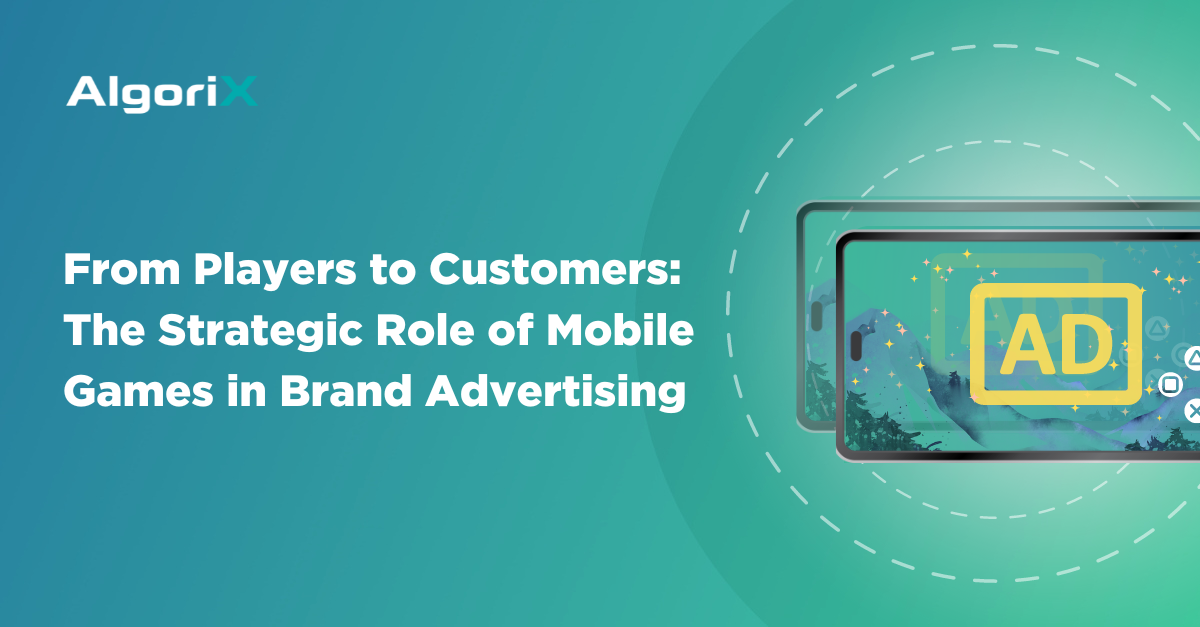From stricter regulations to tighter budgets, a fresh set of challenges surely await us this 2023. What better way to start it then than to talk about how we can overcome these and triumph despite the odds? That’s why we’re calling in our expert strategist, Pranav Kataria, to discuss how to best navigate the twists and turns we’re about to face. As AlgoriX’s Associate Director for Programmatic Strategy, Pranav knows all the ways to elevate your programmatic strategy and take it to the next level!
1. Can you briefly tell us about yourself, your previous experience, and your current role at AlgoriX?
With over 10 years of experience in Ad Tech, I gained expertise in analytics, account management, media planning, programmatic strategy and ad sales. Before joining AlgoriX, I worked across leading organizations like PubMatic, Inmobi, Smaato & Blis. Throughout my career, I worked with various entities within the advertising ecosystem, be it Agencies, Advertisers, Publishers, DSPs & SSPs; as well as global clients across the US, EMEA & APAC regions. I maintained a strong record in improving the processes, sales enablement with analytics ,and managing client relationships to achieve sales and business objectives.
Currently, I’m working with AlgoriX for almost 3 years. Here, I’m responsible for growing key accounts on the network by strategizing and coordinating demand-supply to sustain and grow the revenue. Over the board, I’ve built strong working relationships with clients in identifying their key areas of growth and consistently pushing for new market adoptions like CTV/OTT, PMP packages, contextual targeting, new formats/markets to drive additional revenues. Apart from that, I’m also involved in consultation and guidance for internal teams to align with global industry standards and in mentoring team development and establishing best practices across account management and optimizations.
2. As someone who’s had a fairly long career in ad tech, what’s the most significant change in the industry you’ve witnessed so far?
The last few years saw a tremendous evolution of mobile ad tech industry. Mobile friendliness has become a priority ever since the launch of the App Store, which allowed advertisers to take advantage of mobile apps- a shift from desktop ads. As mobile device capabilities continue to grow with features like interactive gaming, GPS technology, and more mobile ads incorporated these features for a more personalized and engaging user experience.
Furthermore, the rise of e-commerce platforms, increasing traffic into mobile apps, and recent popularity of CTV/OTT, has significantly contributed to increasing demand and growth of the ad tech industry over the past years.
There’s now more competition than ever with data analytics driving more communication and media strategies. This leads to better measurement and improved utilization of spending. The usage of artificial intelligence and machine learning means performance and accuracy have improved. With more granular targeting, customer centric and performance based marketing strategies have continued to improve in the past few years.
3. From your perspective, have these changes also affected the challenges most often faced by demand and supply side partners? If so, how do we help our partners navigate these shifts in the landscape?
The evolution of Ad Tech and all these changes indeed created new challenges, some of which are related to measurement, ad fraud, brand requirements, planning, and so on. There are issues where a user’s experience gets overlooked. In particular, with pop-ups, auto redirects, malware, deceptive ads, etc. We work closely with our demand and supply side partners and 3rd party tools to help ensure that our marketplace remains clean and fraud-free.
Additionally, advertisers today have a lot of data points to target where highly targeted inventory segments and more personalized ads are the way to move forward. We continue to help our partners with their specific campaign requirements with custom audiences, inventory segments, sharing information on successful historical campaigns and suggestions on targeting. This helps them to optimize their main KPIs.
4. In a few words, how would you define a winning programmatic strategy? What elements must it possess?
First, one needs to set clear goals and KPIs. An effective programmatic strategy starts by keeping data in mind. The best thing buyers can do is segment their target audience based on the information gathered with multiple data points. This way they can narrow down their strategy to specific messages which can then be delivered to specific audiences. These audiences or segments can depend on various criteria, such as Demographic, Device, Location, Behaviour & Interests, Contextual parameters, Categories, etc. Highly targeted, personalized ads are the way to succeed.
Besides that, like almost any other type of ads, programmatic also relies mostly on creatives, specifically their visuals partnered with clear messages. The creatives and their message should be precise and relevant. The ad should be delivered through the right channel. The choice of format is one of the most significant features of what creatives look like. The most common formats currently in use are Standard Banners, Rich Media, Video, and Native advertising.
Since the very nature of programmatic is dynamic, it’s most important to stay agile to accept learnings and, accordingly, pivot quickly.
5. On a less serious note, what’s something you enjoy doing outside work that you’d highly recommend our colleagues and partners to try?
Outside of work, I enjoy playing board games, especially chess, which I play almost every other day. This hobby has been a great teacher, as it allowed me to develop a more analytical mindset and help in strengthening skills such as pattern recognition, creativity, imagination, and logic.
Apart from that, I also love the outdoors and enjoy going for hikes during weekends. It’s great to connect with nature, enjoy some gorgeous views, and get away from the city.

6. Last, since the year just started, any predictions about the industry or things we should look forward to in 2023?
With Google’s announcement on phasing out third-party cookies by 2024, one area to look out for is cookie-less advertising solutions. There are likely to be new strategies to emerge, such as the collection of First Party Data and the use of cookie-less signals to target.
Another area we should look forward to is CTV. As CTV platforms are working to improve targeting and measurement capabilities in their programmatic channels, there are improvements expected in cross-channel identity and measurement. There will also be improvements made to determine more granular level of information about the user. These changes are likely to drive growth in programmatic CTV ad spending. According to eMarketer, CTV ad spend is set to grow to $74.88 billion in 2023.6.

